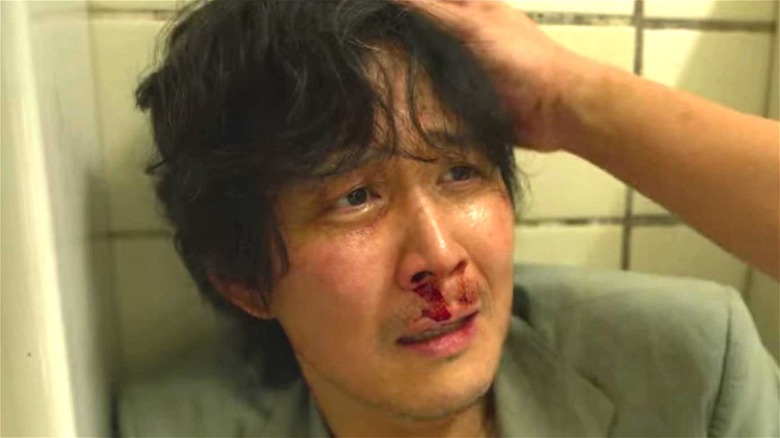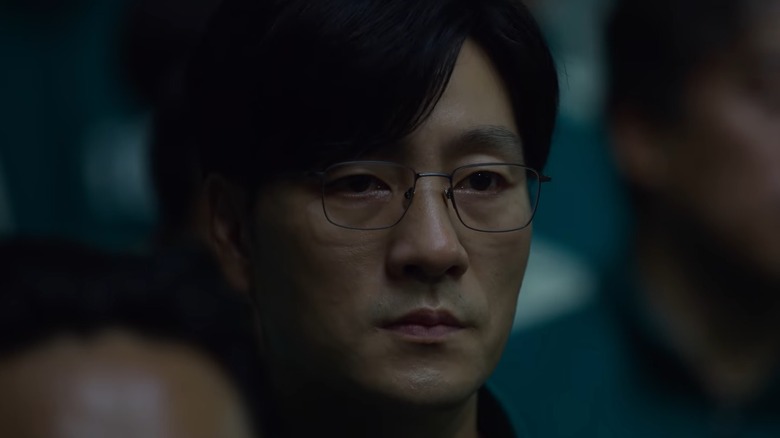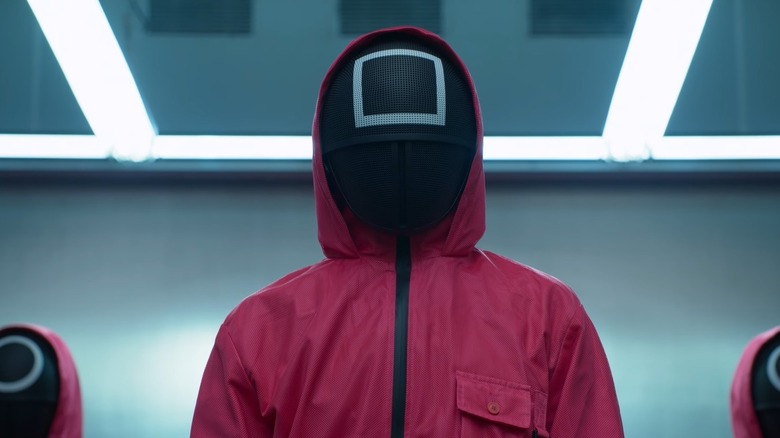Hidden Details In Squid Game You'll Miss If You Don't Speak Korean
The new Korean survival drama from Netflix, "Squid Game," has a grip on subscribers with its compelling and occasionally horrifying look at poverty and greed.
At the center of "Squid Game" is a series of events that wouldn't sound out of place on a standard competition-style reality show, even if the scale of the action is a bit larger than usual. It starts with 456 contestants who compete for a prize worth ₩45.6 billion by playing six simple games. Of course, the stakes of these games are much higher than they would be on reality TV, and the episodes use this premise to take a dark look at the consequences of modern class divisions, wealth disparity, and debt culture.
While "Squid Game," initially titled "Round Six," was produced by Netflix with a worldwide release in mind (per Deadline), it is firmly rooted in Korean culture. As with any project translated from its original language, nuances are easily lost, leading English-speaking fans to wonder what they might be missing. Here are the hidden details in "Squid Game" that viewers may overlook if they don't speak Korean or have much familiarity with Korean culture.
Squid Game's translations might leave some subtleties unnoticed
"Squid Game" is an intense ride, with lots of references that are easy to miss even if the viewer does have a basic knowledge of the setting and inspirations. Thankfully, fans on Reddit have taken the time to outline some translation quirks that might lead fans to miss details about character relationships and plot developments.
For instance,/u/huazzy noted that there are specific character names that could have deeper implications easily lost on viewers who don't speak Korean, writing, "Saebyeok (The North Korean defector's name) means 'Dawn' in Korean." In addition, some of the challenges that the contestants engage in are translated in a way that makes sense to a foreign audience but might lose their true meaning in the process. /u/huazzy explained that the actual title for the first game played "is the same idea as Red Light/Green Light but there's a difference in cadence that makes it more strategic than just Red Light/Green Light."
There are also some subtle differences in how characters address one another in Korean that don't fully translate into English. /u/vitaminwater247 wrote, "I am annoyed that the subtitles uses names when the characters actually says 'hyung' (meaning older brother or senior in a respectable way.)" However, other fans on Reddit noted that direct English translations might simply make the dialogue more confusing for individuals not familiar with Korean customs.
Squid Game features many references to Korean culture
While the linguistic differences between Korean and English can hide subtle details in "Squid Game," at least fans have subtitles to help them understand what is being communicated. Fans of the show on Reddit, however, pointed out that it contains extensive allusions to Korean culture that go unexplained, which might cause viewers to miss certain context clues.
Reddit user /u/lifechainged noted that specific elements indicate Korean class associations, such as the presence of charcoal briquettes in Episode 2 when Sang-woo (Hae-soo Park) is drinking soju. Charcoal briquettes, /u/lifechainged explained, are associated with poverty in Korea and contrast with Sang-woo's prestigious education at Seoul University, a college associated with the upper class.
In addition, the presence of certain actors could have a significance that would easily be lost on viewers unfamiliar with Korean media. /u/huazzy/ observed that Gi Hun is played by Korean A-lister Lee Jung Jae. While that may not mean much to English-speaking viewers, /u/huazzy/ wrote, "Imagine if Leonardo [Dicaprio] was [cast] as Gi Hun." Beyond that, the presence of other famous Korean actors, some of whom are not revealed until the end of the series, could reveal hidden details about the show's potential future in "Squid Game" Season 2.


